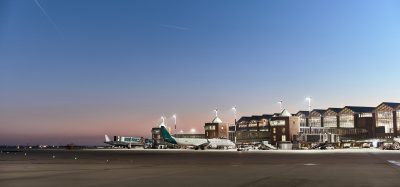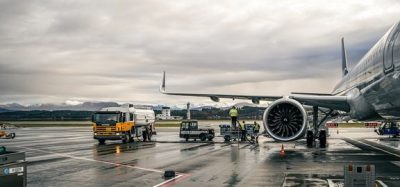Understanding what airport concession sustainability means for gen alpha: A Bologna Airport case study
Posted: 30 June 2025 | Nicola Gualandi, Stefano Gardini | No comments yet
Nicola Gualandi, Retail and Advertising Manager & Stefano Gardini, Business Non-Aviation Director at Bologna Airport, examine the importance of bringing sustainability into the airport-concessionaire relationship in meeting the expectations of the next generation of airport passengers using their airport as a case study.
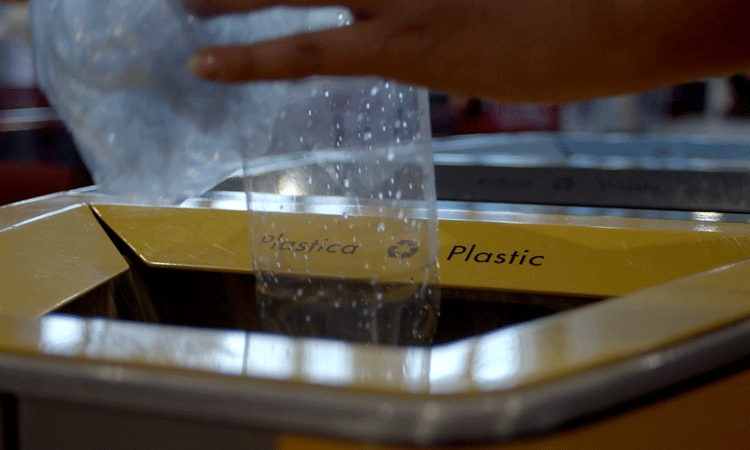

Credit: BLQ.
Nicola Gualandi is presenting the below case study at the upcoming International Airport Summit 2025 taking place in Berlin on 19-20 November. This is a sneak preview of what to expect! Make sure you book your FREE ticket to attend the International Airport Summit, so you do not miss out on the opportunity to speak directly with Nicola and other international airport leaders.
Airports are increasingly dependent on final consumers. Not only do they use airport infrastructures as gateways to reach their final destination, they also benefit from commercial services located inside airport terminals whose revenues represent the backbones of airport budgets.
Understanding what consumers want and their willingness to pay is a key strategic driver. When it comes to sustainability, it is also important to understand the behavioural changes that consumers are undergoing.
The past 60 years of awareness and exposure to sustainability has reshaped consumer behaviour, resetting their expectations and making the majority of consumers willing to buy sustainable solutions (The Demand Revolution – How consumers are redefining sustainability and transforming the future of business, the MIT PRESS 2024).
Join our free webinar: Revolutionising India’s travel experience through the Digi Yatra biometric programme.
Air travel is booming, and airports worldwide need to move passengers faster and more efficiently. Join the Digi Yatra Foundation and IDEMIA to discover how this groundbreaking initiative has already enabled over 60 million seamless domestic journeys using biometric identity management.
Date: 16 Dec | Time: 09:00 GMT
rEGISTER NOW TO SECURE YOUR SPOT
Can’t attend live? No worries – register to receive the recording post-event.
This study highlighted that consumers do not have a common perception on sustainability, but they can be segmented in different clusters or archetypes that range from the so called ‘non-believers’ to consumers who are willing to pay a premium price for sustainable products, the so-called ‘champions’. Those two categories account for nearly 23% of the market, meaning that the remaining 77% consider sustainability a parameter to account for in the process of buying, influencing their willingness to pay, or the general perception of products and services.
Looking into the reasoning behind this, we need to consider the higher environmental sensitivity of new generations. Mccrindle, the social analyst and demographer consultant firm who coined the term Generation Alpha, has highlighted that this generation has been influenced by their environmentally conscious older Gen Z and they show a higher commitment to sustainability than previous generations.
Gen alphas will be our customers in the next five to 10 years. Hence, the urge to bring sustainability into the airport–concessionaire relationship to make the customer’s journey and airport commercial services more sustainable.
If customer demand for sustainability is going to increase in the years to come, airports must start perceiving sustainability as a way to align their business with customer expectations. A misalignment could cause a decrease in airport revenues and in the perception of the airport environment.
Bringing sustainability into the airport–retailer relationship
Airports are multi-stakeholder environments with a high degree of complexity in their relationships.
Airport operators bear the main responsibility for bringing sustainability into airport operations and business. However, when it comes to the customer journey, retailers and other commercial partners play a role in shaping passenger perception and providing an alignment with their expectations.
Leaving each airport concessionaire to adopt its own sustainability criteria and programme could limit the benefit of a comprehensive approach, then the leading role of airport operators emerges in driving airport stakeholders toward common goals.
The process should start by measuring the level of sustainability of commercial partners, also through periodical audits, understanding the expectations of customers – in particular new generations – setting common sustainability goals and enforcing the actions aimed at achieving these goals.
If it might appear simple, we should consider some important elements. Not only do concessionaires have different sustainability backgrounds, sensitivities and goals, but commercial offers are strongly dependent on brand decisions over which airports and retailers have no or limited influence, at least in the short-term.
However, the urge to bring sustainability into the airport-concessionaire relationship should not wait for a long-term initiative, such as contract renewals or a store’s refurbishment. Rather, short-term objectives appear to be a way to start bringing sustainability into the airport-concessionaire relationship.
In defining short-term objectives, airport operators should bear in mind that most building blocks of the relationship will not be modified. Indeed, it’s unlikely that concessionaires will modify their outlets or assortment to be in line with the airport’s need. As such, it’s important to conduct a deep analysis on concessionaire processes aimed at understanding where sustainability principles can be implemented.
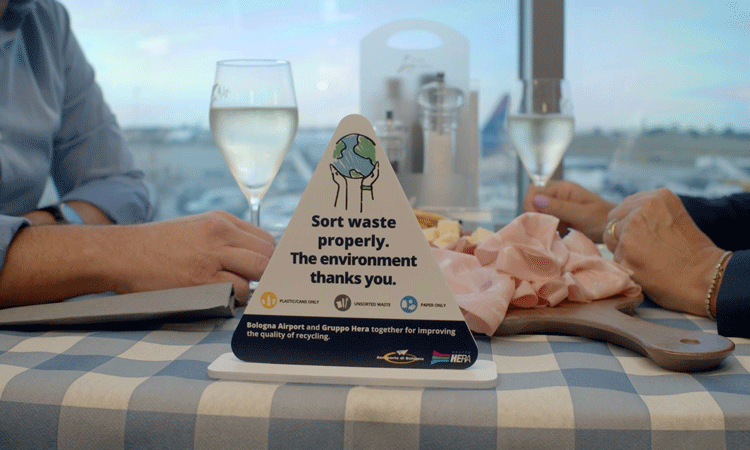

Credit: BLQ.
Waste sorting, re-use of materials, the use of local products, the optimisation of consumable materials in F&B, the wellbeing of the airport’s employees, the reduction of private mobility, the donation of unsold food, all represent opportunities and a common ground on which airports and concessionaires can develop joint initiatives to increase the sustainability of airports in the short term.
Equally, when implementing short-term actions, it is important to define long-term strategies which include the introduction of prescriptive contractual clauses, the inclusion of sustainability criteria in the refurbishment of outlets and the assortments, or even the retail planning.
The case of Bologna Airport
COVID-19 has been a milestone for our industry and a turning point for redefining Bologna Airport’s strategy. We chose to put sustainability among the pillars of our strategy, through the inclusion of sustainability principles into every element of airport business.
An airport Sustainability Committee, which includes managers from all airport departments (commercial non-aviation and aviation, legal, maintenance, human resource, communication, operation, energy management and procurement) has been appointed with the aim of converting strategy into concrete measures. The combination of these actions makes our Sustainability Plan, which is revised once a year.
Airport operators have a deep knowledge of airport business, but when it comes to several aspects of sustainability, they need to rely on specific knowledge. In order to give momentum to our Sustainability Plan in the early stages, we set up key partnerships and collaborations to help us develop a specific programme aimed at improving single aspects of sustainability. Research centres, universities, local waste management companies, local transport providers, non-profit organisations, start-ups, and local institutions are just a few of the entities we have partnered with by signing declaration of intents.
Airport concessionaires occupy a prominent role in our sustainability approach, and they have been identified as key partners for translating sustainability strategy into actions. The importance of getting concessionaires on-board has two major reasons: one they deal with huge quantities of goods and waste materials, where even a minor improvement results in great benefits; two they are important touchpoints for shaping passengers’ perceptions. If we assume that the environmental sensitivity of customers is changing and they are guided by sustainable purchasing, airport shops represent a key touchpoint for delivering the expectation of a new generation of customers.
In the pursuit of this goal, we developed short-term actions as part of a more comprehensive long-term strategy. Short-term actions are carried out without the modification of existing contracts, the refurbishing of existing outlets and without substantial assortment changes, and are aimed at improving waste sorting, circular economy, reducing plastic and improving the wellbeing of concessionaire’s employees.
Here are some of the initiatives we have developed:
Re-use of plastic cups from vending machines
In order to limit plastic waste from vending machines, Bologna Airport has been among the first to join a project aimed at re-using the cups. Used cups are collected in specific boxes installed next to vending machines, and periodically this waste is sent to specific companies that produce new cups for vending machines or durable plastic objects, significantly reducing the waste generated.
Improving waste sorting
Waste sorting represents an important issue for airports. Passengers in airport terminals have multiple inputs and information, so the level of attention they pay to differentiate waste is lower in respect to downtown environments. Airports are also stressful environments for retailers and F&B operators and differentiation of waste is a challenge. These factors made the average percentage of waste sorting at Bologna Airport at approximately 22-25%. We started to investigate the factors that prevented airport concessionaires from reaching higher percentages of waste sorting and then we started to find solutions aimed at improving several elements of the process (logistic, procedure, staff training). In just a few months the percentage of waste sorting has doubled and in less than a year we have exceeded 50%.
Reducing plastic in F&B outlets
Plastic reduction represents a challenge for travel retail: single-use plastic is a perfect material for takeaway food and liquids since it is easy to transport, light to carry and plastic bottles are resealable. However, plastic pollution represents a serious threat and is attracting global concerns. Yet, market alternatives to plastic available are still limited. In collaboration with Plastic Free Onlus, we developed a scheme to decrease the use of single-use plastic in F&B outlets. Plastic cutlery, straws, cups and food boxes have been substituted with cardboard and other compostable materials. We have also started to phase out plastic bottles. At the end of the first year, three restaurants have phased out single-use plastic from B2C processes, while in the others, and in bars, we have observed a reduction, with a total reduction in single-use plastic by 50% in the outlets included in the project.
Donation of unsold food
A by-product of airport bars and restaurants is food waste. Operators minimise unsold products by aligning production with customer waves or adopting selling schemes such as Too Good To Go. However, quantities are higher than demand with the consequence that food, which from the sanitary point of view is still edible, goes to waste. In order to reduce this waste and help communities, we selected local associations that provide meals for people in need, to donate the unsold food to daily. In the first six months of the project we collected and donated around two tons of food, with quantities rising in the current year due to an increase in the number of bars and restaurants included in the project.
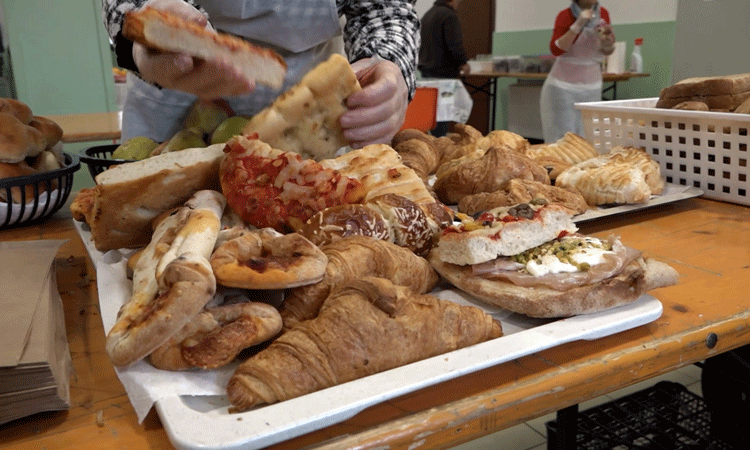

Credit: BLQ.
Donation of pharmaceutical products
A similar project has just started and is aimed at donating the pharmaceutical products that cannot be sold due to a short-term expiration date. These products are given to local medical clinics that help people who aren’t assisted by the national health system.
Bringing the airport community together
Sustainability also means improving working conditions for concessionaire employees and creating a sense of community. Engaged and motivated people establish a network of relationships which can spread sustainability-led messages and positively influence customer behaviours.
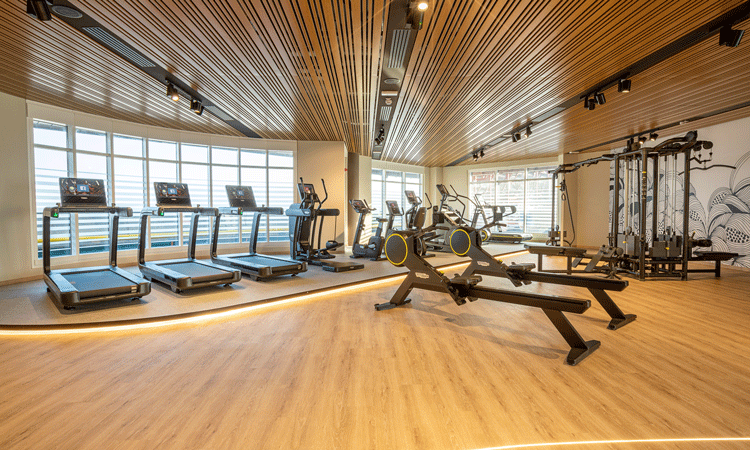

Credit: BLQ.
Among our initiatives, it is worth mentioning the development of a premium fitness club available at a very convenient rate, a premium healthy restaurant, and a specific training programme for concessionaire staff to improve their knowledge of sustainability, customer experience and service. An integrated mobility subscription is also offered to employees, for travel to the airport instead of using their own cars.
Nicola Gualandi is presenting the above case study at the upcoming International Airport Summit 2025 taking place in Berlin on 19-20 November. Do you have questions for Nicola or would you like some further advice on your own airport operations? Make sure you book your FREE ticket to attend the International Airport Summit so you do not miss out on the opportunity to speak directly with Nicola.




Stay Connected with International Airport Review — Subscribe for Free!
Get exclusive access to the latest airport and aviation industry insights from International Airport Review — tailored to your interests.
✅ Expert-Led Webinars – Gain insights from global aviation leaders
✅ Weekly News & Reports – Airport innovation, thought leadership, and industry trends
✅ Exclusive Industry Insights – Discover cutting-edge technologies shaping the future of air travel
✅ International Airport Summit – Join our flagship event to network with industry leaders and explore the latest advancements
Choose the updates that matter most to you.
Sign up now to stay informed, inspired, and connected — all for free!
Thank you for being part of our aviation community. Let’s keep shaping the future of airports together!
Related topics
Food and Beverage (F&B), International Airport Summit, Non-aeronautical revenue, Passenger experience and seamless travel, Retail, Sustainability, Workforce






